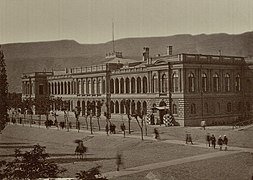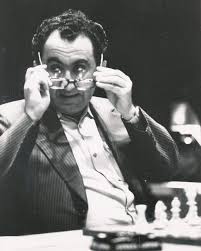How a Street-Sweeping Orphan Became a Chess Legend
Introduction
Tigran Petrosian was one of the greatest chess players in history. A former world champion, he is known for his exceptional defensive skills that changed the way chess is played.

But his journey to the top was not easy. From sweeping streets as an orphan during World War II to becoming a chess icon, his story is truly inspiring.
TABLE OF CONTENTS
Early Years & Struggles
Tigran Petrosian was born on June 17, 1929, in Tiflis (now Tbilisi, Georgia). He was a bright student and discovered chess at the age of 8. However, his father did not see a future in chess and urged him to focus on school.
Tragedy struck when World War II began. At just 11 years old, Tigran lost both parents and became an orphan. To survive, he worked as a street sweeper in harsh conditions. Reflecting on this period, he once said:
“I was ashamed of being a street sweeper. In the early morning, it was fine, but when people came out, I hated it.”
During this time, he also began losing his hearing, a challenge he would face for the rest of his life.
Chess Rise
At 12, Tigran began training at the Palace of Pioneers in Tbilisi. He developed a defensive and patient style, which later became his trademark. He was a quick learner and soon started winning local tournaments.

I like only those chess games in which I have played in accordance with the position’s requirements… I believe only in logical and right game.
– Tigran Petrosian
By 16, he won the Georgian Chess Championship. He then moved to Yerevan, Armenia, where he became the Armenian Chess Champion and won the USSR Junior Chess Championship twice (1946, 1947). His reputation grew, and he moved to Moscow in 1949. Within a year, he earned the Soviet Master title. By 1952, he became a Grandmaster after a strong performance at the Stockholm Interzonal tournament.
In just a decade, Tigran had gone from a struggling orphan to a rising chess Grandmaster.

Becoming World Champion
In 1962, Tigran won the Candidates Tournament, defeating chess greats like Bobby Fischer and Mikhail Tal. However, the event was controversial, with Fischer accusing Soviet players of pre-arranging draws. Despite this, Tigran earned the right to challenge World Champion Mikhail Botvinnik.

The 1963 World Chess Championship was a battle of strategy. Tigran’s defensive mastery helped him secure victory, finishing with a score of 12.5-9.5. He became the 9th World Chess Champion.

In 1966 World Championship, he successfully defended his title against Boris Spassky in a closely contested match (12.5-11.5). However, Spassky defeated him in their rematch in 1969, ending Tigran’s reign.

Later Years & Legacy
Even after losing the world title, Tigran remained a top player. He reached the 1971 Candidates Final but lost to Fischer. He won major tournaments like Lone Pine (1976) and Keres Memorial (1979).

In 1983, Tigran was diagnosed with stomach cancer. Despite his illness, he continued contributing to chess until his passing in 1984 at age 55.

Armenia honored him by naming the Yerevan Chess School after him. His legacy lives on through the Tigran Petrosian Chess House, a center for chess in Armenia. His strategic brilliance and resilience continue to inspire players worldwide.

Conclusion
Tigran Petrosian’s journey from hardship to greatness is a testament to perseverance and determination. Despite countless obstacles, he became one of the greatest chess minds ever. His defensive genius reshaped the game, and his story remains an inspiration to chess lovers everywhere.
Written By: nbrasington / Chess.com
Source: Chess.com Blog
Photos: Chess.com



